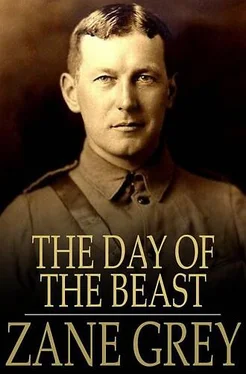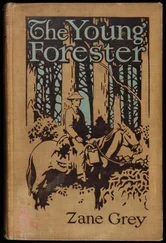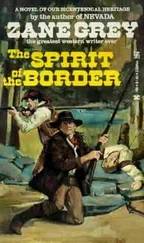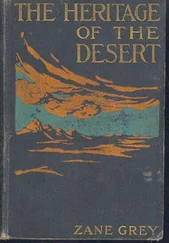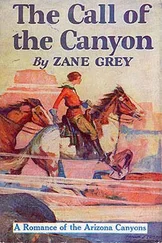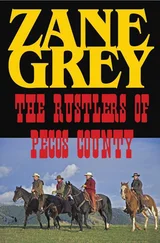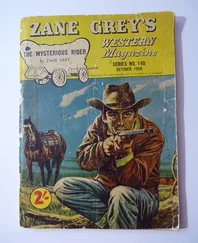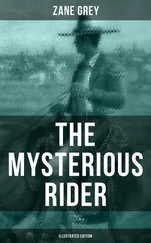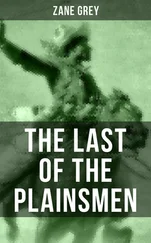Zane Grey - The Day of the Beast
Здесь есть возможность читать онлайн «Zane Grey - The Day of the Beast» весь текст электронной книги совершенно бесплатно (целиком полную версию без сокращений). В некоторых случаях можно слушать аудио, скачать через торрент в формате fb2 и присутствует краткое содержание. Жанр: Старинная литература. Описание произведения, (предисловие) а так же отзывы посетителей доступны на портале библиотеки ЛибКат.
- Название:The Day of the Beast
- Автор:
- Жанр:
- Год:неизвестен
- ISBN:нет данных
- Рейтинг книги:4 / 5. Голосов: 1
-
Избранное:Добавить в избранное
- Отзывы:
-
Ваша оценка:
- 80
- 1
- 2
- 3
- 4
- 5
The Day of the Beast: краткое содержание, описание и аннотация
Предлагаем к чтению аннотацию, описание, краткое содержание или предисловие (зависит от того, что написал сам автор книги «The Day of the Beast»). Если вы не нашли необходимую информацию о книге — напишите в комментариях, мы постараемся отыскать её.
The Day of the Beast — читать онлайн бесплатно полную книгу (весь текст) целиком
Ниже представлен текст книги, разбитый по страницам. Система сохранения места последней прочитанной страницы, позволяет с удобством читать онлайн бесплатно книгу «The Day of the Beast», без необходимости каждый раз заново искать на чём Вы остановились. Поставьте закладку, и сможете в любой момент перейти на страницу, на которой закончили чтение.
Интервал:
Закладка:
The ship docked at dark. Lane left Blair at the rail, gloomily gazing down at the confusion and bustle on the wharf, and went below to search for their comrade, Red Payson. He found him in his stateroom, half crouched on the berth, apparently oblivious to the important moment. It required a little effort to rouse Payson. He was a slight boy, not over twenty-two, sallow-faced and freckled, with hair that gave him the only name his comrades knew him by. Lane packed the boy's few possessions and talked vehemently all the time. Red braced up, ready to go, but he had little to say and that with the weary nonchalance habitual with him. Lane helped him up on deck, and the exertion, slight as it was, brought home to Lane that he needed help himself. They found Maynard waiting.
“Well, here we are—the Three Musketeers,” said Lane, in a voice he tried to make cheerful.
“Where's the band?” inquired Maynard, sardonically.
“Gay old New York—and me broke!” exclaimed Red Payson, as if to himself.
Then the three stood by the rail, at the gangplank, waiting for the hurried stream of passengers to disembark. Down on the wharf under the glaring white lights, swarmed a crowd from which rose a babel of voices. A whistle blew sharply at intervals. The whirr and honk of taxicabs, and the jangle of trolley cars, sounded beyond the wide dark portal of the dock-house. The murky water below splashed between ship and pier. Deep voices rang out, and merry laughs, and shrill glad cries of welcome. The bright light shone down upon a motley, dark-garbed mass, moving slowly. The spirit of the occasion was manifest.
When the three disabled soldiers, the last passengers to disembark, slowly and laboriously descended to the wharf, no one offered to help them, no one waited with a smile and hand-clasp of welcome. No one saw them, except a burly policeman, who evidently had charge of the traffic at the door. He poked his club into the ribs of the one-legged, slowly shuffling Maynard and said with cheerful gruffness: “Step lively, Buddy, step lively!”
Lane, with his two comrades, spent three days at a barracks-hospital for soldiers in Bedford Park. It was a long flimsy structure, bare except for rows of cots along each wall, and stoves at middle, and each end. The place was overcrowded with disabled service men, all worse off than Lane and his comrades. Lane felt that he really was keeping a sicker man than himself from what attention the hospital afforded. So he was glad, at the end of the third day, to find they could be discharged from the army.
This enforced stay, when he knew he was on his way home, had seemed almost unbearable to Lane. He felt that he had the strength to get home, and that was about all. He began to expectorate blood—no unusual thing for him—but this time to such extent that he feared the return of hemorrhage. The nights seemed sleepless, burning, black voids; and the days were hideous with noise and distraction. He wanted to think about the fact that he was home—an astounding and unbelievable thing. Once he went down to the city and walked on Broadway and Fifth Avenue, taxing his endurance to the limit. But he had become used to pain and exhaustion. So long as he could keep up he did not mind.
That day three powerful impressions were forced upon Lane, never to be effaced. First he found that the change in him was vast and incalculable and vague. He could divine but not understand. Secondly, the men of the service, disabled or not, were old stories to New Yorkers. Lane saw soldiers begging from pedestrians. He muttered to himself: “By God, I'll starve to death before I ever do that!” He could not detect any aloofness on the part of passers-by. They were just inattentive. Lane remembered with sudden shock how differently soldiers had been regarded two or three years ago. He had read lengthy newspaper accounts of the wild and magnificent welcome accorded to the first soldiers to return to New York. How strange the contrast! But that was long ago—past history—buried under the immense and hurried and inscrutable changes of a nation. Lane divined that, as he felt the mighty resistless throb of the great city. His third and strongest impression concerned the women he met and passed on the streets. Their lips and cheeks were rouged. Their dresses were cut too low at the neck. But even this fashion was not nearly so striking as the short skirts, cut off at the knees, and in many cases above. At first this roused a strange amaze in Lane. “What's the idea, I wonder?” he mused. But in the end it disgusted him. He reflected that for two swift years he had been out of the track of events, away from centers of population. Paris itself had held no attraction for him. Dreamer and brooder, he had failed to see the material things. But this third impression troubled him more than the other two and stirred thoughts he tried to dispel. Returning to the barracks he learned that he and his friends would be free on the morrow; and long into the night he rejoiced in the knowledge. Free! The grinding, incomprehensible Juggernaut and himself were at the parting of the ways. Before he went to sleep he remembered a forgotten prayer his mother had taught him. His ordeal was over. What had happened did not matter. The Hell was past and he must bury memory. Whether or not he had a month or a year to live it must be lived without memories of his ordeal.
Next day, at the railroad station, even at the moment of departure, Lane and Blair Maynard had their problem with Red Payson. He did not want to go to Blair's home.
“But hell, Red, you haven't any home—any place to go,” blurted out Maynard.
So they argued with him, and implored him, and reasoned with him. Since his discharge from the hospital in France Payson had always been cool, weary, abstracted, difficult to reach. And here at the last he grew strangely aloof and stubborn. Every word that bore relation to his own welfare seemed only to alienate him the more. Lane sensed this.
“See here, Red,” he said, “hasn't it occurred to you that Blair and I need you?”
“Need me? What!” he exclaimed, with perceptible change of tone, though it was incredulous.
“Sure,” interposed Blair.
“Red—listen,” continued Lane, speaking low and with difficulty. “Blair and I have been through the—the whole show together.... And we've been in the hospitals with you for months.... We've all got—sort of to rely on each other.... Let's stick it out to the end. I guess—you know—we may not have a long time....”
Читать дальшеИнтервал:
Закладка:
Похожие книги на «The Day of the Beast»
Представляем Вашему вниманию похожие книги на «The Day of the Beast» списком для выбора. Мы отобрали схожую по названию и смыслу литературу в надежде предоставить читателям больше вариантов отыскать новые, интересные, ещё непрочитанные произведения.
Обсуждение, отзывы о книге «The Day of the Beast» и просто собственные мнения читателей. Оставьте ваши комментарии, напишите, что Вы думаете о произведении, его смысле или главных героях. Укажите что конкретно понравилось, а что нет, и почему Вы так считаете.
